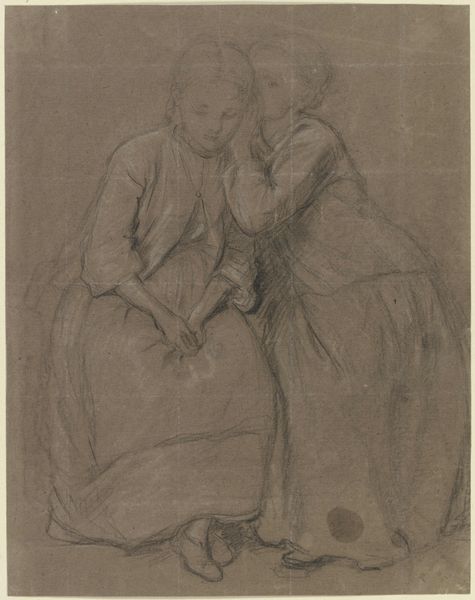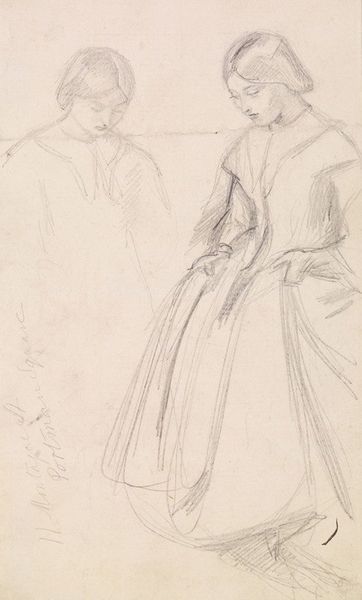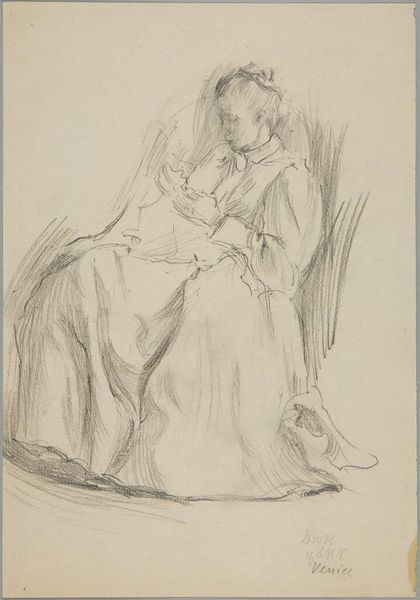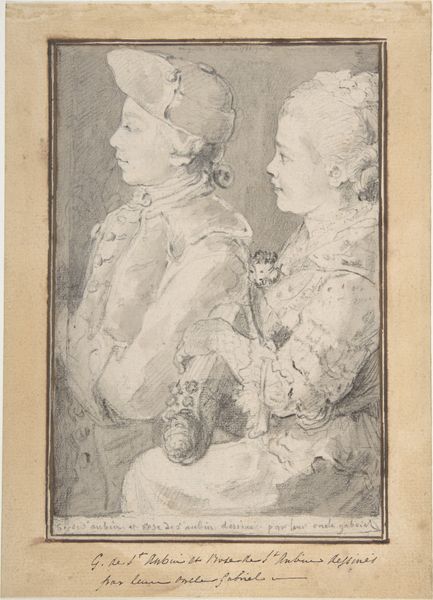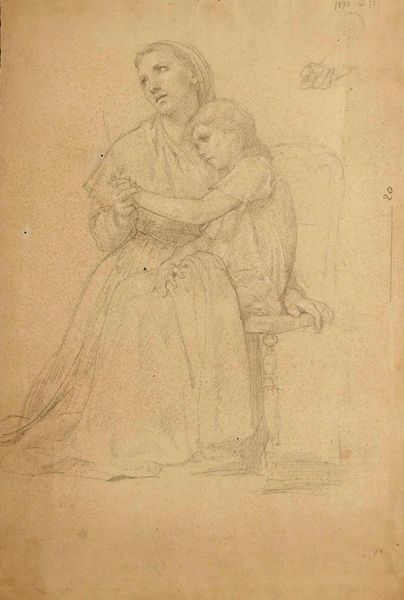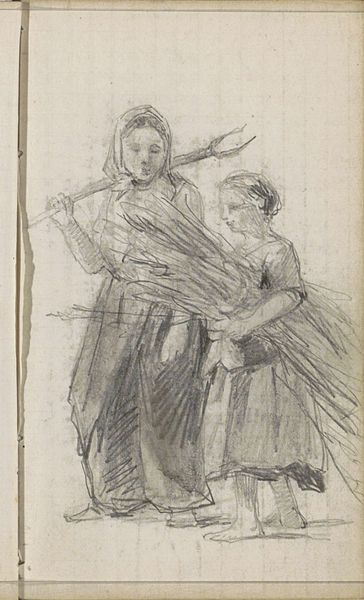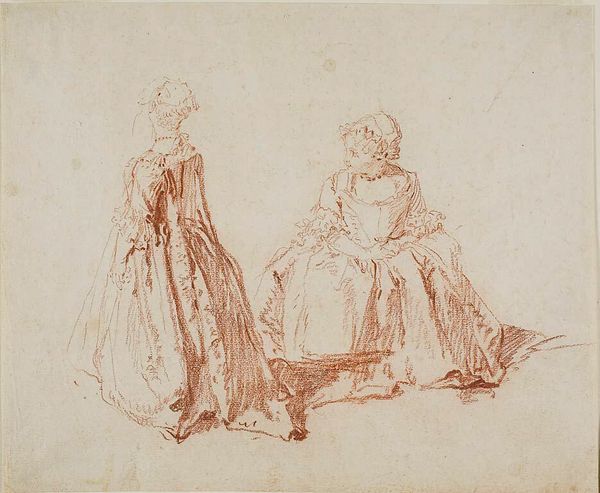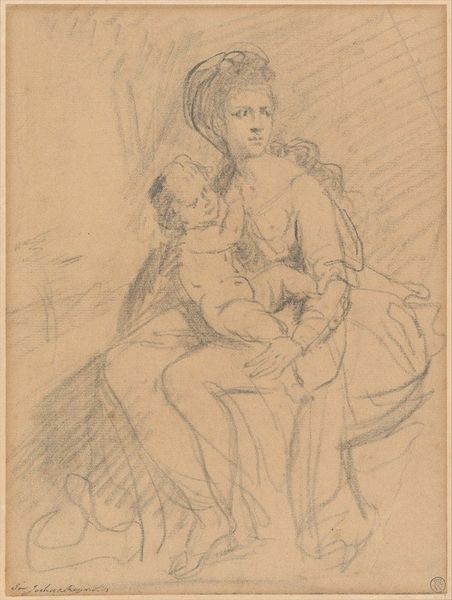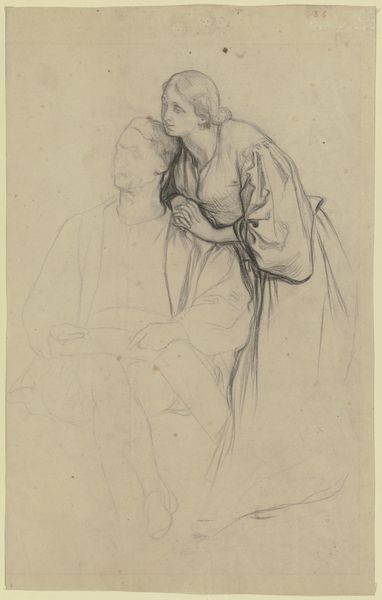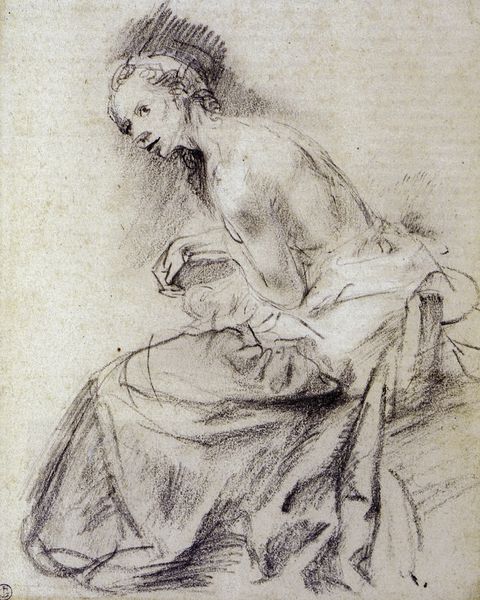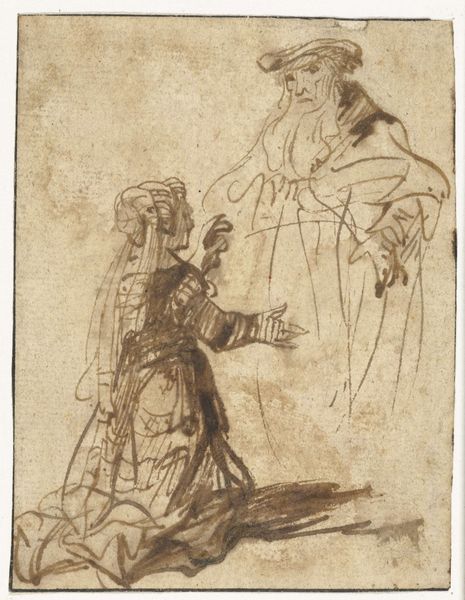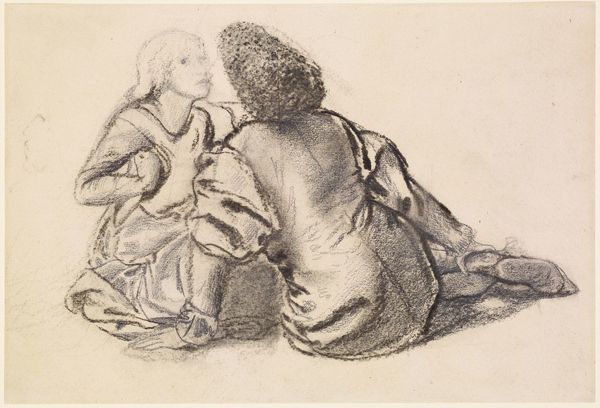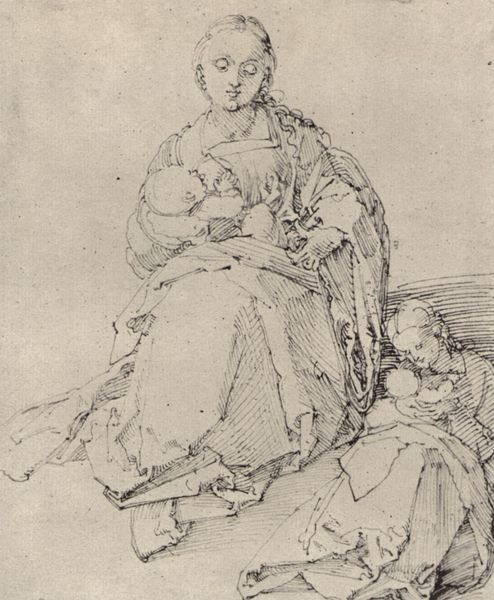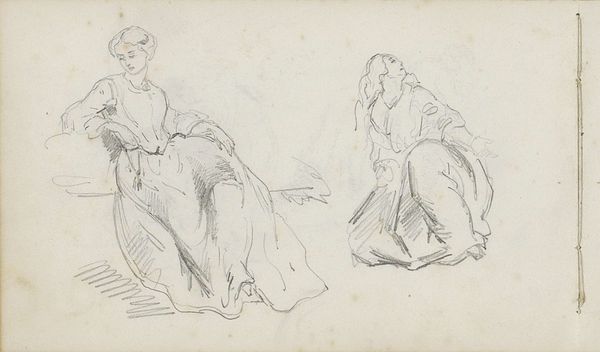
drawing, charcoal
#
portrait
#
drawing
#
charcoal drawing
#
oil painting
#
charcoal
#
charcoal
#
female-portraits
#
rococo
Dimensions: 21.2 x 35.2 cm
Copyright: Public domain
Curator: Well, it looks like a study. Charcoal and chalk? It's unfinished, but… beautiful. I can almost feel the texture of that paper. Editor: Indeed! What we're looking at is a drawing by Jean-Antoine Watteau titled "Two Seated Women," created around 1717. This piece offers us a glimpse into the artistic practices of the Rococo era. Curator: Rococo! It's that interest in surface that gets me, here. Look at how Watteau suggests the shimmer of silk with those few, deft strokes. It's not just depicting women, it's celebrating a certain materiality. You can just imagine those women swishing around in these fine garments. Editor: Absolutely, and think of the societal context. This was the era of the French court, luxury, and powdered wigs. These sketches were circulating amongst a pretty limited, pretty wealthy clientele at the time. I'm also fascinated by what seems like intimacy, right? These works often capture the private moments of upper class life. Curator: Definitely. You’ve got this interesting play of light on the dress and how the texture and highlights would have required considerable effort to produce, effort that signifies the wealth of those consuming them as artwork. They want things they can’t have or make, because of skill, money, tools or talent! Editor: And let's not forget Watteau’s own place within that structure. He was working for specific patrons. And by focusing on leisure and elegance, it really sort of cemented a certain image that was in contrast with the reality for many in the lower classes. The art system played a role in promoting idealized and exclusive spaces. Curator: A system he seems critical of though? To me, it’s so intimate. This charcoal drawing offers a quiet but complicated insight into beauty as a thing tied into art-making processes. What you bring into being versus just what they “mean” is interesting. Editor: True. And thinking about the institution today… presenting such drawings, what narrative are we crafting about access, art, and labor in this world? It's something to ponder, isn't it? Curator: Exactly. Well, whatever the intention was, the end result draws me in every time! The details invite hours of re-viewing. Editor: Indeed! It has me wanting to go read up more on the salons.
Comments
No comments
Be the first to comment and join the conversation on the ultimate creative platform.
